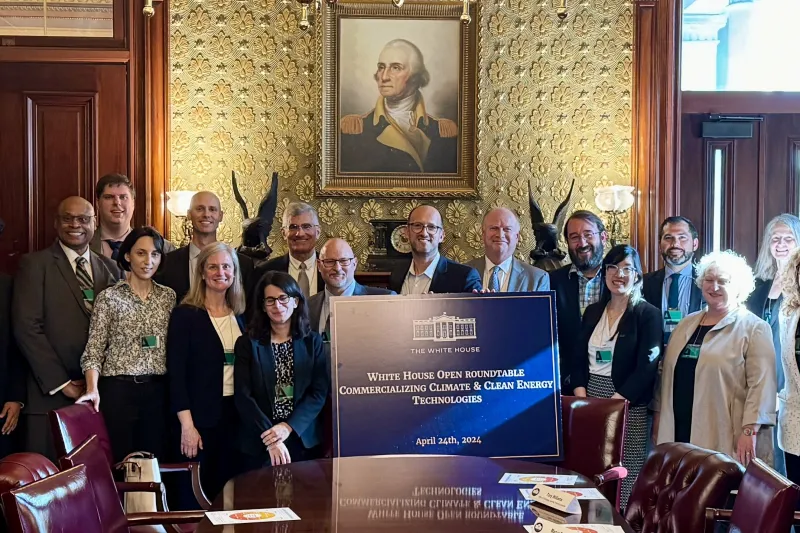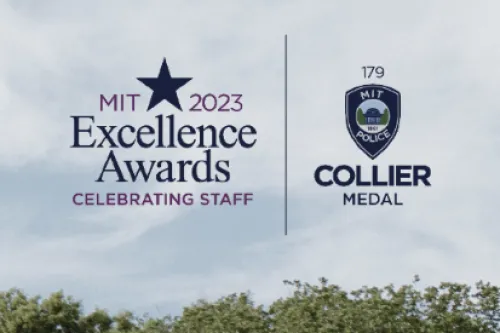White House Office of Science and Technology Policy Announces Actions to Spur the Commercialization Climate & Clean Energy Technologies

Yesterday, leadership at the White House Office of Science and Technology Policy, the White House National Economic Council, and the White House Climate Policy Office convened senior representatives from the Department of Energy (DOE), U.S. National Science Foundation (NSF), and venture capital organizations, universities, and law firms to announce a set of actions to spur innovation and accelerate progress in tackling the climate crisis. These actions are part the Biden-Harris Administration’s commitment to unleashing a clean energy boom through the President’s Investing in America agenda and Earth Week announcements in support of building a stronger, healthier future for all.
- DOE’s Office of Technology Transitions (OTT) announced three winners and five runners-up in the inaugural EnergyTech University Prize (EnergyTech UP) Faculty Track as well as three National Winners and 13 Bonus Prize Winners from the Student Track. Over $500,000 in prizes were awarded to teams from both tracks throughout the competition. Student Track teams identified and assessed the market potential of a promising energy technologies including clean fuels and solar technologies. Faculty Track teams created a plan to expand energy technology commercialization or entrepreneurship activities at their home institution. Teams from Cleveland State University, Harvard University, Husson University, University of Arkansas, and University of Notre Dame attended the meeting.
- DOE announced it is deploying its new Adoption Readiness Level (ARL) framework – which evaluates key risks for commercializing a technology, such as access to capital, community perception, and supply chain issues – to better manage clean energy projects supported by the President’s Investing in America agenda to reach our nation’s ambitious climate goals. Specifically, DOE will integrate the ARL framework in current and forthcoming phases of the Energy Program for Innovation Clusters (EPIC), which already supports 50 incubators and accelerators across the country, funds essential and innovative programs that help start-ups succeed. Incubators are able to provide foundational services, mentorship, training, and more to their start up members. By incorporating the ARL framework into this toolkit, start-ups will be better positioned to scale innovative technology and communicate with potential partners and funders in the private sector.
- NSF anticipates announcing it will open a new funding opportunity for Translation Accelerators in summer 2024. The NSF Translation Accelerators, authorized by the President’s CHIPS and Science Act, will significantly expand the nation’s capacity to transfer laboratory-created prototypes or proofs-of-concept into products or services with societal or economic impact. Each NSF Translation Accelerator will be eligible to receive up to $10 million annually for up to five years, subject to congressional appropriations, and will be essential to accelerating key technologies and long-term U.S. competitiveness and security.
- 15 major venture capital organizations, universities, and law firms – several of which were represented – have published a new, open-source climate and clean energy model term sheet that provides several best practices and reasonable approaches to technology transfer negotiations. This non-binding term sheet serves as a representative template for initiating discussions between investors and academic institutions, aiming to balance and expedite negotiations and accelerate the entry of new climate, environmental, and sustainability products and services into the market months or years earlier. This effort is modeled off a previous approach to create an open-source model term sheet for life sciences startups.
Subscribe to our newsletter
Stay updated with the latest insights and events with our quarterly newsletter.


